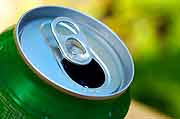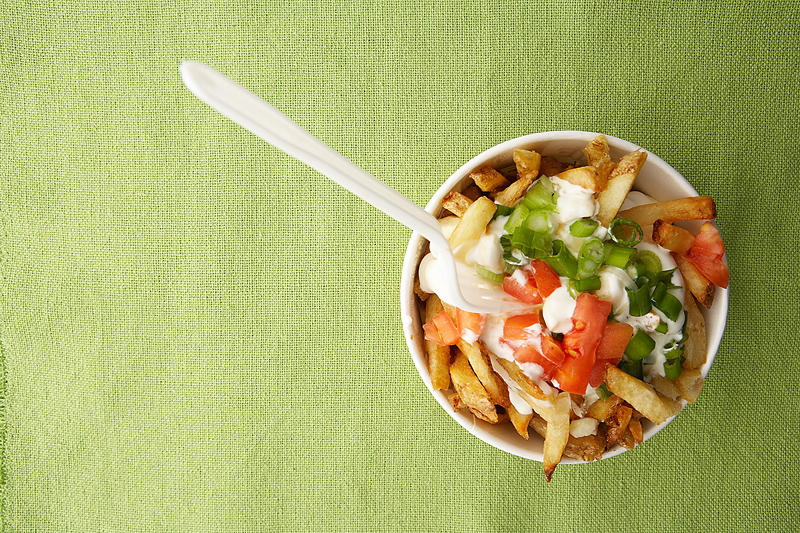
THURSDAY, Jan. 16 (HealthDay News) — Overweight adults often turn to diet beverages to help them slim down, but this tactic might backfire, new research suggests.
Compared to people who drink sweetened beverages, heavy people with a diet-soda habit actually consume more daily calories from food, the study finds.
“Diet-soda drinkers who are overweight or obese are eating more solid food during the day than overweight and obese people who drink sugary beverages,” said study researcher Sara Bleich, associate professor of health policy and management at the Johns Hopkins University Bloomberg School of Public Health.
In order to lose weight, the diet-soda drinkers need to cut back on their meals and snacks, according to the study, which was published online Jan. 16 in the American Journal of Public Health.
Earlier research might help explain the findings, Bleich said. It’s thought that the artificial sweeteners used in the diet drinks may disrupt the brain’s sweet sensors, she said.
“If you consume artificial sweeteners, it makes the brain think you are less satiated or full, and as a result you eat more,” she said.
The American Beverage Association, the trade group representing soda manufacturers, disagrees with the study’s findings.
“Diet beverages have been shown to be an effective tool as part of an overall weight-management plan,” the association said in a statement Thursday. “Numerous studies have repeatedly demonstrated the benefits of diet beverages — as well as low-calorie sweeteners, which are in thousands of foods and beverages — in helping to reduce calorie intake.”
Losing or maintaining weight, the association said, involves balancing the total calories consumed with those burned through physical activity. This study, the ABA said, looked only at one 24-hour period and didn’t ask about physical-activity levels.
The study of nearly 24,000 U.S. adults also found that normal-weight adults who drank artificially sweetened beverages consumed fewer calories than normal-weight adults who drank regular sweetened drinks. Bleich said she can’t explain why normal-weight people don’t appear to eat more calories.
For the study, which was funded by the U.S. National Heart, Lung, and Blood Institute, Bleich used information from the 1999 to 2010 National Health and Nutrition Examination Survey that asked about dietary habits over the previous 24 hours. Bleich looked at national patterns in diet-beverage habits, sugary-drink consumption and caloric intake by body-weight category.
The researchers found that twice as many obese people drink diet soda as normal-weight adults. Overall, 11 percent of normal-weight, 19 percent of overweight and 22 percent of obese adults drink diet beverages.
Overweight people who reported drinking diet beverages took in 88 more calories a day from solid food than those who drank sugary beverages, the researchers found. And obese participants who drank diet drinks consumed nearly 200 more calories a day from food than obese men and women who drank sugary drinks.
Meanwhile, the normal-weight adults who drank diet soda got 73 fewer daily calories from food, while the normal-weight people who drank sugary drinks added 46 calories a day from food.
The study doesn’t prove that drinking low-calorie beverages leads to eating more. Also among the study’s limitations is that people self-reported their intake, said Alice Lichtenstein, a professor of nutrition science and policy at Tufts University in Boston. Lichtenstein was not involved in the study.
“Drawing conclusions from self-reported food and beverage intake data is challenging, particularly because we know normal-weight and overweight people report with different levels of accuracy,” she said.
The study results didn’t surprise Susie Swithers, a professor of psychological sciences at Purdue University.
Swithers, who had no part in the study, said animal research has found that artificial sweeteners disrupt basic learning processes. Sometimes sweet tastes predict caloric intake, as when sugar is eaten. With diet drinks, however, no calories arrive with the sweet taste.
Studies in people have found that the brains of diet-soda drinkers respond differently to sugar than the brains of those who don’t drink diet beverages, Swithers said. “It’s as if the experience with diet soda has made the meaning of sweet tastes confusing or unpredictable,” she said.
The health experts agreed on one point, however: The findings aren’t a reason to go back to regular soda or to drink more of it if you haven’t given it up.
“Instead, the goal should be to reduce consumption of sweeteners altogether,” Swithers said.
Lichtenstein agreed. “The best option is always water,” she said.
More information
To learn more about alternatives to sugary drinks, visit the American Academy of Nutrition and Dietetics.
Copyright © 2026 HealthDay. All rights reserved.

